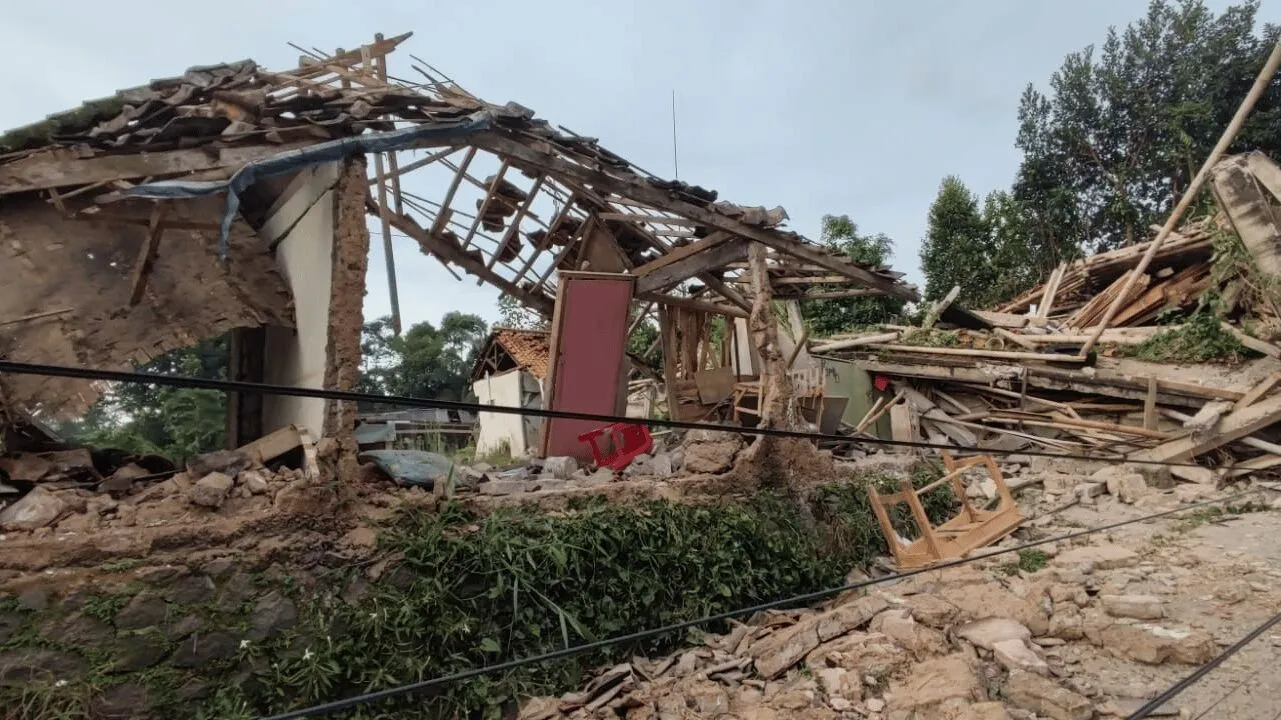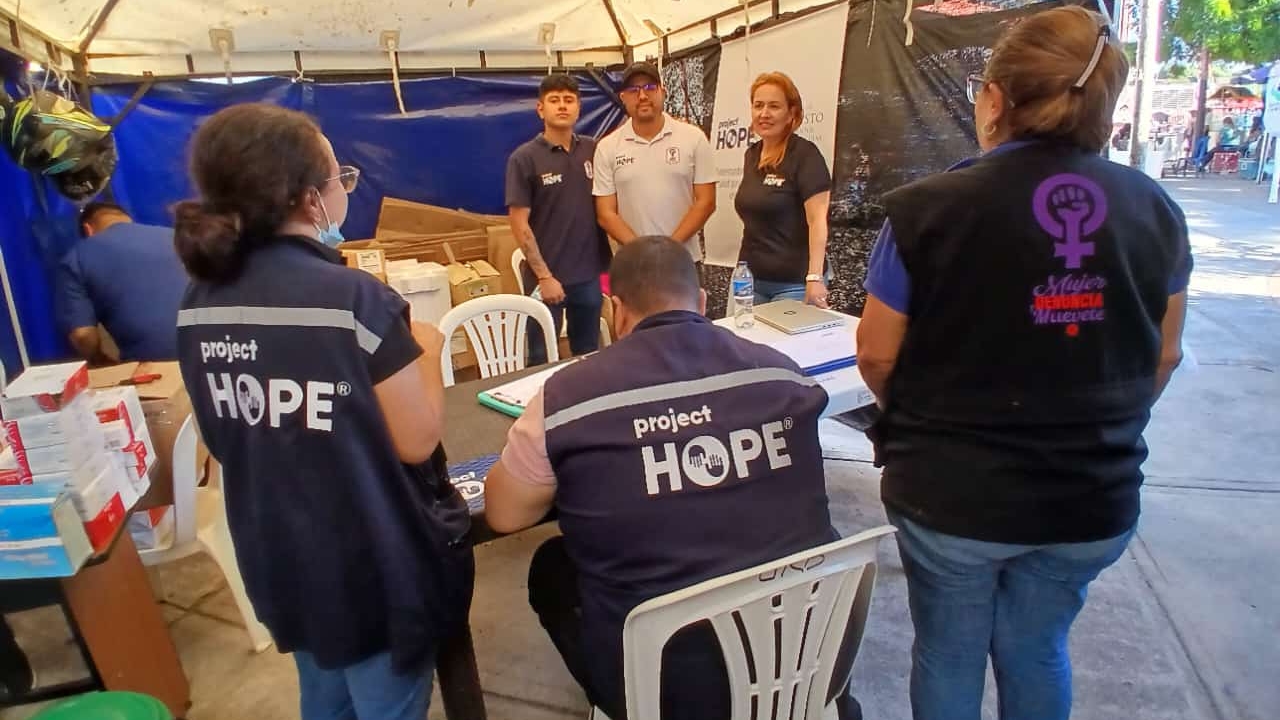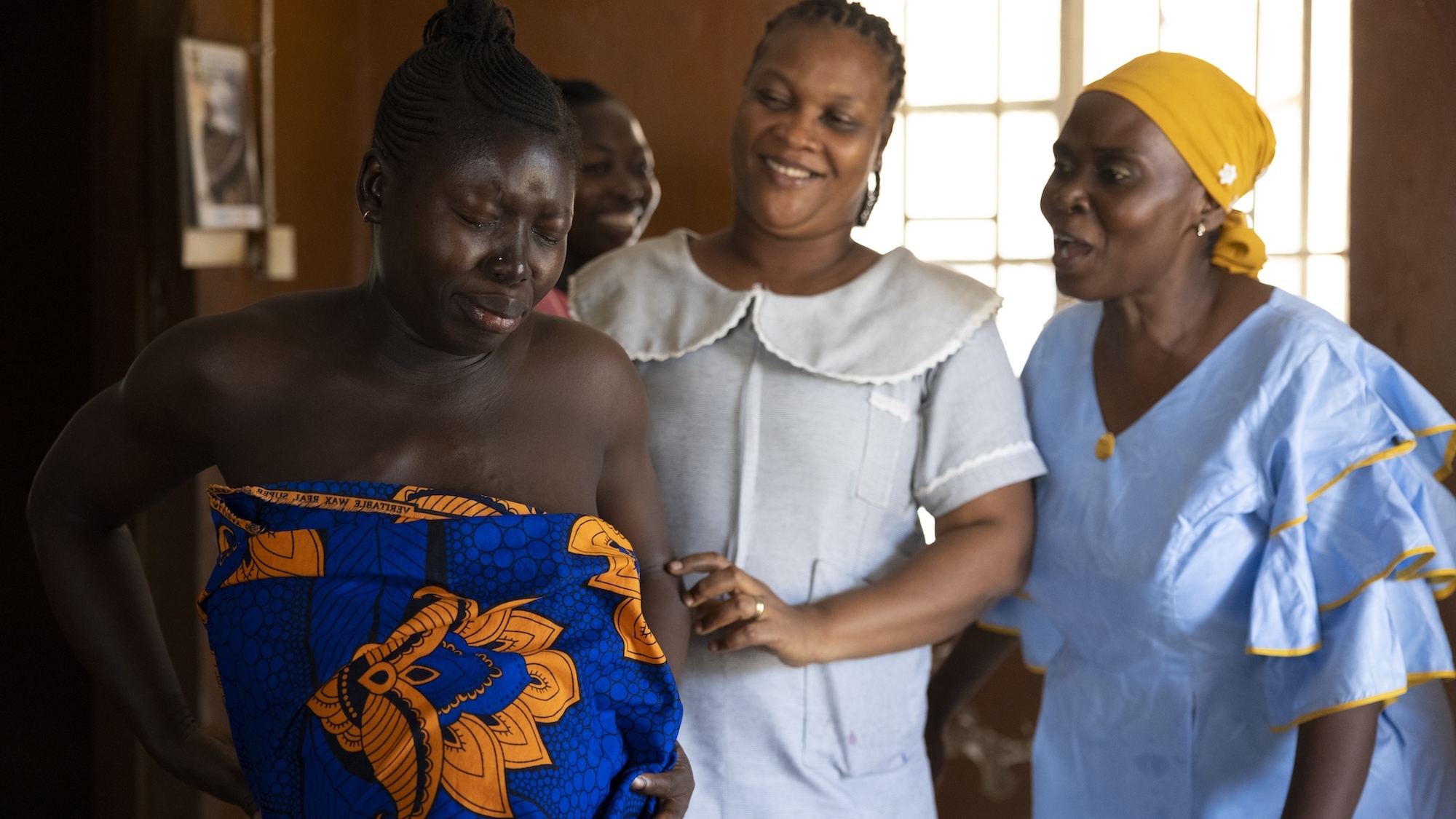Cianjur, Indonesia Earthquake: What You Need To Know
Project HOPE has concluded the response in Cianjur, Indonesia.

This story was updated on December 13, 2022.
At least 114,000 people have been displaced after a 5.6-magnitude earthquake struck near the town of Cianjur in West Java, Indonesia on November 21. The death toll has climbed to more than 300, approximately one-third of whom were children who had been trapped in homes or schools that fell.
The Latest:
- November’s earthquake injured more than 7,700 people and displaced another 114,000 in West Java, Indonesia
- Many communities have been cut off by landslides and lost access to essential services
- December is Indonesia’s rainiest month, which may contribute to additional health issues among affected communities
- Project HOPE is partnering with local organizations in Indonesia to meet the most pressing health needs
How Project HOPE is Responding
Project HOPE has had a permanent presence in Indonesia through the Yayasan Project HOPE office since 2019. This affiliate of Project HOPE aims to transform lives and uplift communities by empowering health care workers to teach and deliver innovative, lifesaving solutions every day and in times of crisis. Led by our Emergency Response Staff in Indonesia, Project HOPE is engaging with the IBU Foundation, one of our established partners in the region, who immediately mobilized in response to the earthquake. The IBU Foundation is a humanitarian organization that focuses support on mothers and children and has a long history of responding to a variety of emergencies across Indonesia.
At this time, Project HOPE, in partnership with the IBU Foundation, is responding in the sub-district of Cugenang, a remote area that experienced the greatest damage and now has approximately 48,000 displaced people. Response efforts include the deployment of two Mobile Medical Units that will provide medical services and promote hygiene awareness to displaced communities in the most affected areas. Along with medical treatment, mental health and psychological support through counseling will be provided to assist the community in coping with the situation.
Additionally, Project HOPE is coordinating the distribution of family shelter kits and hygiene kits. These supplies will target the most vulnerable displaced population, including the elderly, those with disabilities, and female-led households. Project HOPE is also building 20 WASH facilities across 10 IDP camps, which will benefit 400 people. These efforts will be overseen by a community-based clean water and sanitation management group, which Project HOPE formed to facilitate the long-term planning, construction, and management of clean water and sanitation facilities, as well as health promotion activities and the distribution of hygiene supplies. Project HOPE will staff continue to reassess the affected community needs in IDP camps to ensure programming targets the greatest needs.
Situation on the Ground
On Monday, November 21, a 5.6-magnitude earthquake struck near the town of Cianjur in West Java, Indonesia. The earthquake triggered landslides across the region, burying roads and preventing access to the affected areas except to those using motorbikes or on foot. Despite success in clearing debris and re-opening main roads into Cianjur, many remote areas remain isolated. This lack of access has complicated many emergency services efforts as first responders struggled to reach the affected areas the day following the quake.
Response operations have also been hampered by power outages and over-stretched medical resources. Local hospitals are reportedly beyond capacity. Additionally, one regional hospital experienced considerable damage, resulting in the injured being treated outdoors in makeshift tents. The overwhelmed healthcare facilities, compounded by the shortage of medical professionals, have resulted in some patients being evacuated to facilities in the neighboring city of Bandung.



